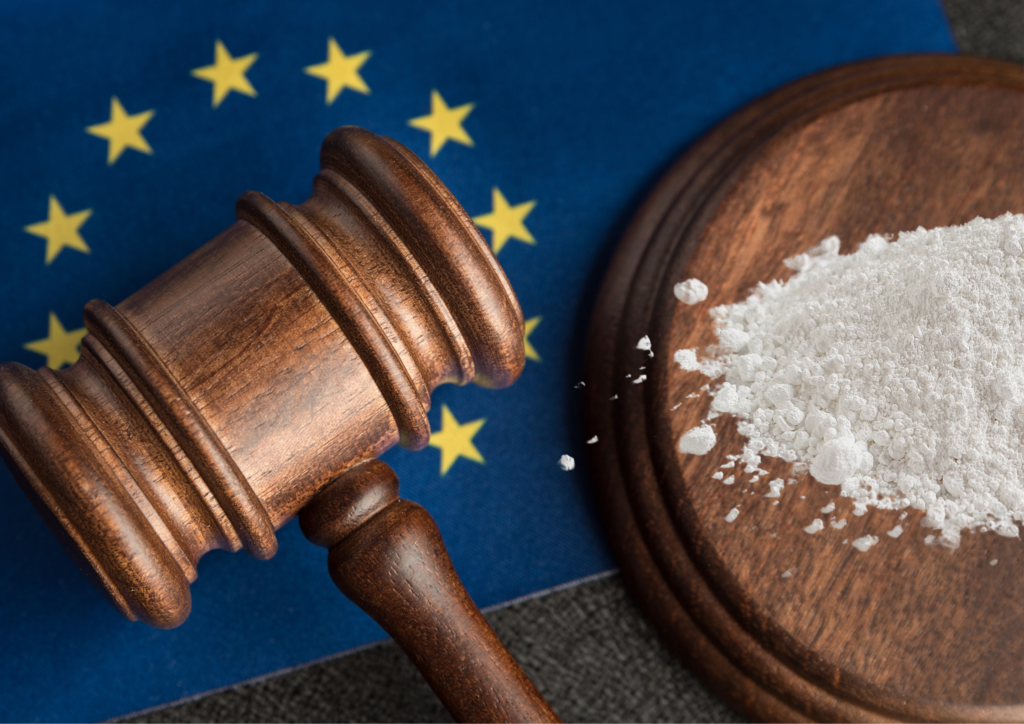
Industrials win (temporary) reversal of the classification of TiO₂ as a carcinogen
The European Union General Court invalidates the classification of titanium dioxide
A new twist in the tug-of-war that has pitted industry and health authorities against each other for years over the risks of titanium dioxide (TiO₂): the European Union General Court has just handed down a ruling overturning the classification of TiO₂ as a category 2 carcinogen by inhalation. This classification, which came into effect in October 2019 and was formalized via European Commission Regulation 2020/217, had since been challenged by TiO₂ manufacturers and users who had filed appeals with the European Union General Court.

On what grounds did the Court make its decision?
In the press release issued today, the Court summarizes the reasons that led to this judgment with two main arguments:
- A lack of “reliability” of the file on which the classification is based (the density of non-agglomerated primary TiO₂ nanoparticles was considered, yet it is higher than the density of agglomerates, since agglomeration creates empty spaces, less dense than TiO₂)
- and the fact that the substance would not be “intrinsically” capable of causing cancer, the carcinogenic hazard being related not to TiO₂ per se, but more particularly to respirable titanium dioxide powders containing 1% or more of particles with an aerodynamic diameter of 10 μm or less (i.e., 10,000 nm).
The General Court has thus ruled in favor of the defenders of TiO2. A possible appeal against the decision of the Court could be filed within two months and ten days.
The irony of it all
This cancellation is particularly problematic insofar as it allows industrialists to no longer alert workers when powders contain nanometric TiO₂, whose danger has not been ruled out. Furthermore, for years manufacturers have been reluctant to provide information on their TiO2 nanoparticles to health authorities.
AVICENN’s immediate reaction
AVICENN has been contacted by the French radio FranceInfo to comment on this decision:
→ Find the full FranceInfo TiO2 podcast here.
No implication for consumers but the end of information for workers?
This decision therefore challenges the harmonized classification and labeling of titanium dioxide in all its forms, including TiO2 nanomaterials. While it does not undermine the ban on E171 in food (which is covered by another regulation), it does compromises workers’ access to information: if they are deprived of information on the potential danger of the product, they will be less able to protect themselves.
That these industrialists openly refuse to inform their employees, despite the risks involved, is revealing.
What data does the EU Court have to consider that workers who breathe unprotected TiO₂ nanoparticles from now on will not develop cancer in the long term?
How can the precautionary principle be applied?
The judgment refers to the lack of reliable and acceptable studies.
However, is it not the manufacturers that have a large share of responsibility in this state of affairs?
Given the health uncertainties, the precautionary principle must prevail: how can it be applied in practice from now on, if an appeal is not filed or if it is rejected?
What other reactions and follow-ups are there?
VeilleNanos will compile here the different reactions that will follow this decision.
Do not hesitate to send us your contributions to contact@veillenanos.fr
- On November 23, the NGO Corporate Europe Observatory also deplored this decision; it denounced the weight of lobbies and called on the Commission and the Member States to protect citizens from the dangers of titanium dioxide.
- On November 28, Catherine Pinchaut, National Secretary of the CFDT, also reacted by way of PRESS RELEASE: “What do manufacturers lose with this classification? Much less than what employees risk for their health. (…) The CFDT is asking for more ethics and transparency in the use of nanomaterials and will ask the French government and its European partners to intervene in this sense.
To be continued…
The classification remains in effect for the time being
At the beginning of February 2023 the classification is still in force. If an appeal is filed by then*, the classification will remain in effect until the end of the proceedings.
* [NDLR] On February 13, 2023, a statement from the Ministry of Ecological Transition indicated that the French government has filed an appeal challenging the European Union Court’s decision to annul the classification of titanium dioxide on February 8, 2023. The Commission followed suit, also appealing the judgment on February 14.
This classification therefore continues to apply “until the outcome of this new procedure is known”.
Other news on the topic
Upcoming Nano Agenda
- Introductory seminar on the principles of Life Cycle Assessment (LCA) and its specificities when applied to nanomaterials (metal nanoparticles, oxides, etc.), from their production to their end-of-life.
- Organizer: NaMasTE research group (Manufactured Nanomaterials, Toxicology, Ecotoxicology and Risks: Towards Controlled Development)
- Speaker: Gaetana (Tania) Quaranta, Senior Lecturer, University of Strasbourg – IPHC
- Website: https://gdr-namaste.cnrs.fr/

- Webconference for analysis laboratories, plant fertilizer manufacturers and distributors, public authorities…
- Moderated by David Krupka, nanotechnologies development manager at AFNOR Normalisation and Emilie Langlois-Bertrand, nantechnologies standardization project manager.
- In partnership with Armand Masion (CEREGE) and Patrice Charpentier (ANSES).
- This exchange will also be an opportunity to explore the creation of a national platform to identify standardization needs.
- Website: https://www.afnor.org/evenements/qualite/nanotechnologies-agriculture-cadre-pratique-responsable

- International conference on metallic nano-objects for experts working in the interdisciplinary field of metallic nanoparticles, with a particular emphasis on nanoparticle synthesis and characterization, plasmonics, optics and photonics, catalysis, biomedicine, electronics, and nanoparticle recycling
- Organizers / Partners: CNRS, Bordeaux University, Bordeaux INP, ICMCB, CRPP, CBMN, ISM
- Website: https://mno2026.sciencesconf.org



